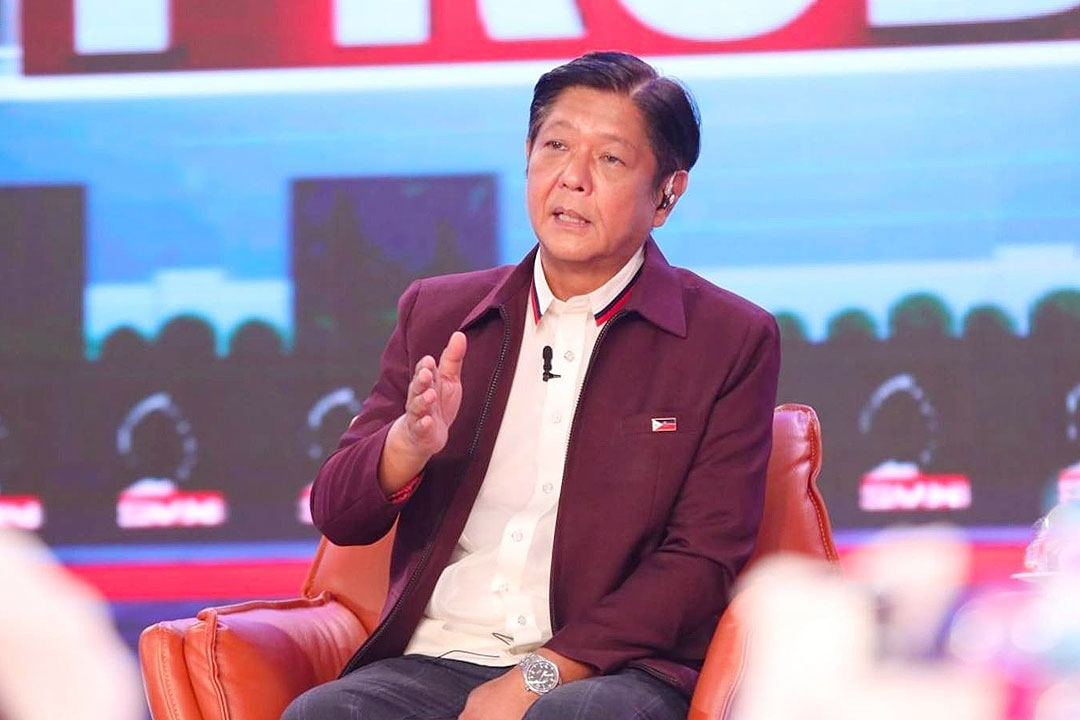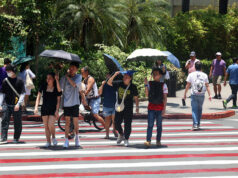Marcos signals go-slow stance on joining RCEP

PRESIDENT-ELECT Ferdinand R. Marcos, Jr. will review the Regional Comprehensive Economic Partnership (RCEP) to determine whether the agriculture sector is adequately protected.
Mr. Marcos said in a news conference on Thursday that he wants to ensure that the agriculture industry is not unduly disadvantaged by the trade deal.
“Sa aking pananaw (in my view), let’s have another look at it because the RCEP is a very fine thing. Ako talaga ang great proponent/believer in trade. (I am a great believer in trade) Walang yumaman na bansa na hindi maganda ang kanilang trade, (No country grew rich without taking care of trade),” Mr. Marcos said.
“Let’s have a look at it again and make sure na hindi naman malulugi ang ating agriculture sector (that the agriculture sector does not get put out of business). Pagka na-ratify na natin ’yan, dapat handa na ’yung system natin na makipag-compete dahil kung hindi makapag-compete, masasapawan sila. Mawawala ’yung ating local and panay nalang ang import natin (Once it is ratified, we must make ready measures that will help the industry compete, because if we don’t, our farmers will be overwhelmed. Our local goods will disappear and all we will do is import) and we don’t want that,” he added.
RCEP started taking effect on Jan. 1 for countries that have completed their ratification process. Its members are Australia, China, Japan, South Korea, New Zealand and the 10 members of the Association of Southeast Asian Nations. It is touted as the world’s biggest trade agreement since it represents 30% of the world’s gross domestic product.
The Philippines has yet to finalize its participation in RCEP after the Senate failed to act on it before adjourning on Feb. 3 for the election break. President Rodrigo R. Duterte signed the trade deal on Sept. 2.
Senate Foreign Relations Committee Chair Senator Aquilino Martin L. Pimentel III has said that discussions on RCEP are due to be held on May 30. The Senate is due to adjourn sine die on June 3, ahead of the entry of the newly-elected contingent of Senators.
Mr. Marcos said he is unsure whether agriculture is “sufficiently robust” to take on the competition resulting from the opening of markets under RCEP.
“Pag kaya ng ating magsasaka o suportahan natin, ng gobyerno, at kaya nila mag-compete, eh di i-ratify na natin ’yan. (When farmers are able to compete on their own or with government support, let’s ratify it) But let’s protect our farmers,” he added.
Asked to comment, Trade Secretary Ramon M. Lopez said that the Department of Trade and Industry will brief Mr. Marcos on how safe domestic agriculture will be under RCEP.
“With due respect, we will assure the President-elect that RCEP is safe for the agriculture sector, mainly because no new sensitive agriculture products were included in RCEP,” Mr. Lopez said in a Viber message.
“We need to nurture our local production capacity, not delay RCEP. We hope that the next administration will recognize that stopping the RCEP will not do any good,” he added.
Mr. Lopez said the issue at hand is missing trade and investment opportunities the longer RCEP participation remains in doubt.
He added that the Philippines and Indonesia are the only countries that have yet to finalize their participation.
“If we don’t ratify, some investments will also shift towards RCEP participating countries because those countries will enjoy market concessions in other RCEP countries. This will affect our very good foreign direct investment (FDI) growth momentum and job generation goals after the pandemic,” Mr. Lopez said.
Raul Q. Montemayor, agricultural group Federation of Free Farmers national manager, said that the Senate should defer any action regarding the RCEP and let the incoming administration handle the trade deal.
“The Senate should defer any action and give Mr. Marcos’ administration the leeway to handle RCEP in accordance with his policy and vision for agriculture,” Mr. Montemayor said in a Viber message.
“What will benefit agriculture is not RCEP per se but the steps that the government will take to prepare our farmers to compete. In this way, they will benefit from trade agreements like RCEP and will not be unduly harmed by it,” he added.
Foundation for Economic Freedom President Calixto V. Chikiamco said in a mobile phone message that a mechanism under RCEP allows the suspension of imports if there is an import surge that poses a threat to the domestic industry.
“A review would reveal that tariff protections for sensitive agricultural products, such as rice, corn, swine and chicken meat, garlic, etc. would remain in place,” Mr. Chikiamco said.
“The negative impact of not joining RCEP would be most felt by industry, rather than agriculture, as it would lose to other manufacturers based in RCEP in other countries. To assess the overall impact of joining or not joining RCEP, one has to look not only at the impact on agriculture, but on industry as well,” he added.
Rizal Commercial Banking Corp. Chief Economist Michael L. Ricafort said in a Viber message that a review of RCEP would be “prudent.”
“A review… would be prudent, in view of the country’s existing free trade agreements (FTAs) that offer some reasonable level of production to rice farmers by maintaining comfortable levels of import tariffs due to the highly sensitive nature and vulnerability of the industry in terms of the importance of food security and to prevent dumping of cheaper agricultural imports with subsidies from their home countries,” Mr. Ricafort said. — Revin Mikhael D. Ochave



